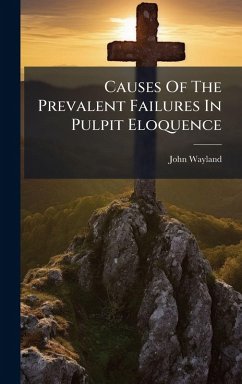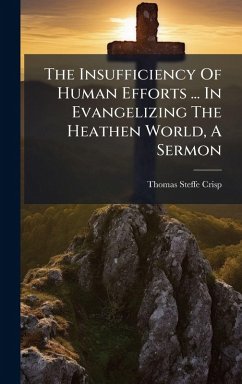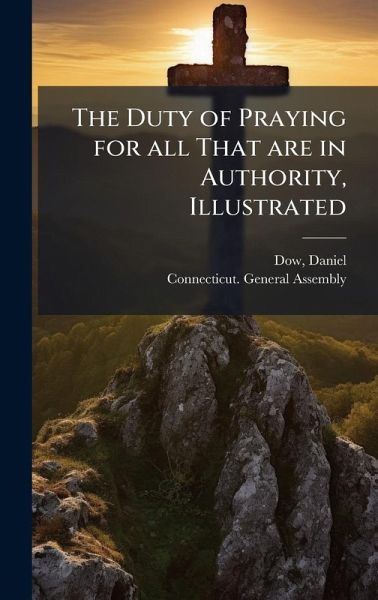
The Duty of Praying for all That are in Authority, Illustrated
Versandkostenfrei!
Versandfertig in über 4 Wochen
25,99 €
inkl. MwSt.
Weitere Ausgaben:

PAYBACK Punkte
13 °P sammeln!
In "The Duty of Praying for all That are in Authority, Illustrated," Daniel Dow delivers a compelling sermon before His Excellency Oliver Wolcott and the Honorable Legislature of the State of Connecticut on May 4, 1825. This address, given at the General Election, explores the religious and civic responsibilities of citizens to pray for their leaders and the well-being of the state. Dow's sermon provides insights into the intersection of faith and governance in early 19th-century America, reflecting the values and concerns of a society deeply rooted in religious tradition. The text offers a va...
In "The Duty of Praying for all That are in Authority, Illustrated," Daniel Dow delivers a compelling sermon before His Excellency Oliver Wolcott and the Honorable Legislature of the State of Connecticut on May 4, 1825. This address, given at the General Election, explores the religious and civic responsibilities of citizens to pray for their leaders and the well-being of the state. Dow's sermon provides insights into the intersection of faith and governance in early 19th-century America, reflecting the values and concerns of a society deeply rooted in religious tradition. The text offers a valuable glimpse into the political and spiritual climate of Connecticut during this period and underscores the enduring importance of prayer in public life. It is a significant historical document for those studying American religious history, political thought, and the role of sermons in shaping public discourse. This work has been selected by scholars as being culturally important, and is part of the knowledge base of civilization as we know it. This work was reproduced from the original artifact, and remains as true to the original work as possible. Therefore, you will see the original copyright references, library stamps (as most of these works have been housed in our most important libraries around the world), and other notations in the work. This work is in the public domain in the United States of America, and possibly other nations. Within the United States, you may freely copy and distribute this work, as no entity (individual or corporate) has a copyright on the body of the work. As a reproduction of a historical artifact, this work may contain missing or blurred pages, poor pictures, errant marks, etc. Scholars believe, and we concur, that this work is important enough to be preserved, reproduced, and made generally available to the public. We appreciate your support of the preservation process, and thank you for being an important part of keeping this knowledge alive and relevant.



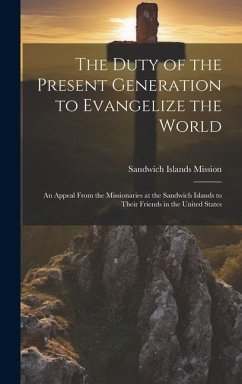
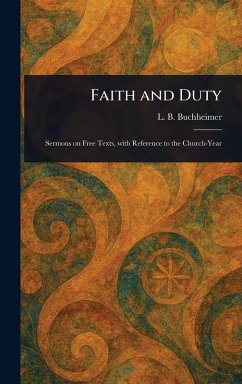
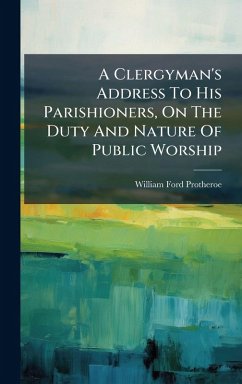
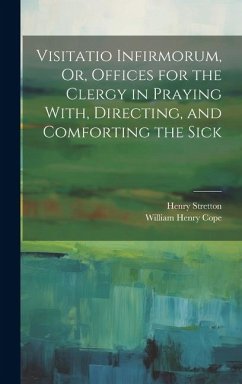



![A Sermon [on Acts. Iv, 12] Preached Before The Incorporated Society For The Propagation Of The Gospel In Foreign Parts Cover A Sermon [on Acts. Iv, 12] Preached Before The Incorporated Society For The Propagation Of The Gospel In Foreign Parts](https://bilder.buecher.de/produkte/75/75243/75243344n.jpg)
